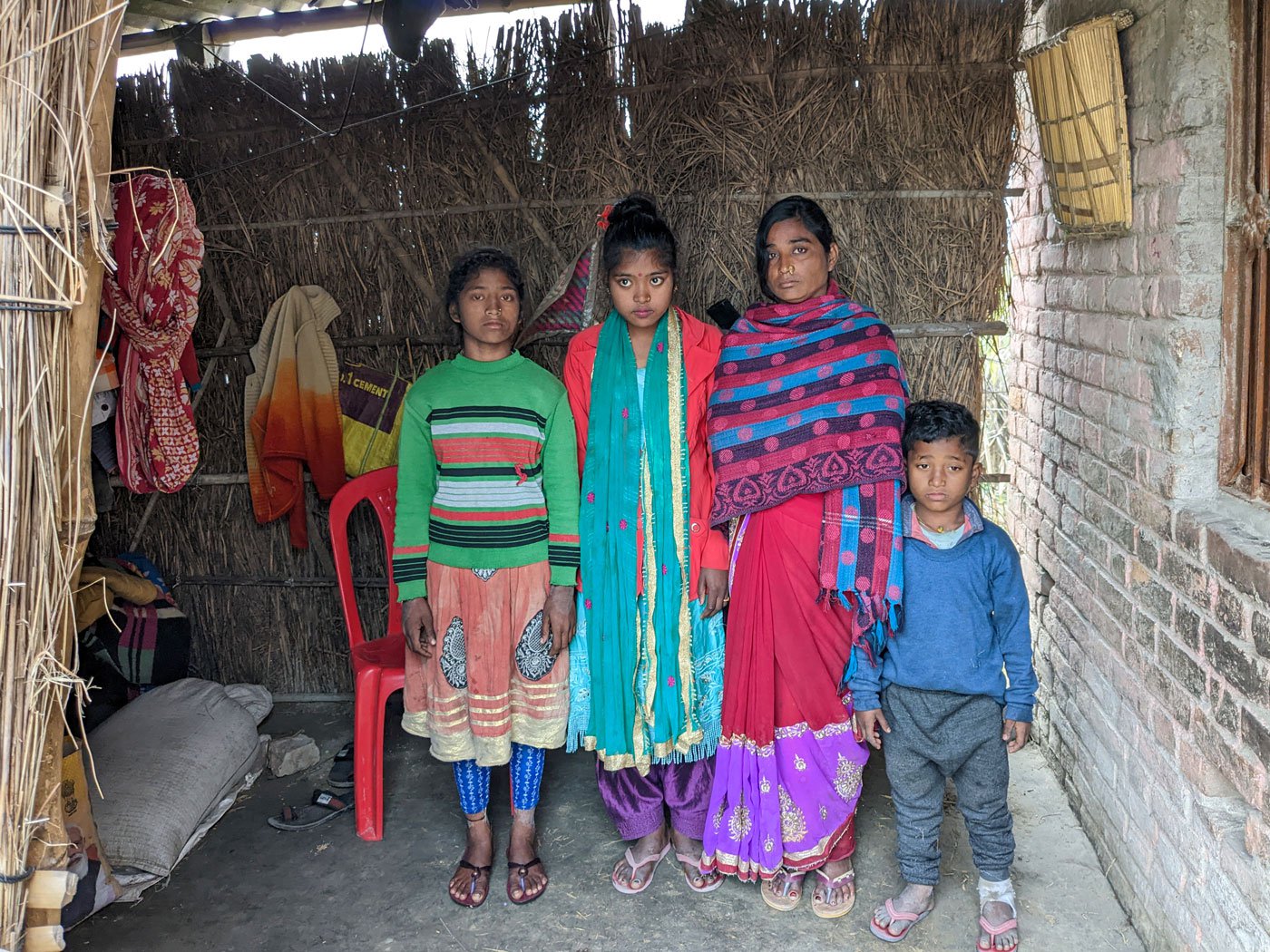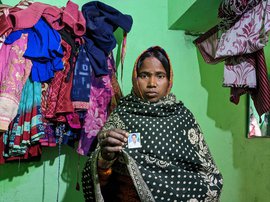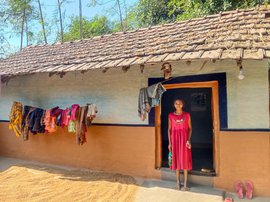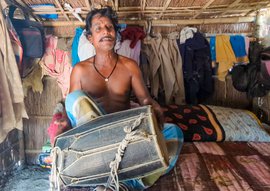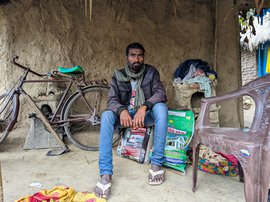Mukesh Ram came back home to Mohammadpur village 10 days before Diwali. He had been working as a construction-labourer in Himachal Pradesh's Shimla district.
The 40-year-old made it a point to return home to Gopalganj district of Bihar to perform Chhat puja – performed on the sixth day after Diwali. His wife, Prabhabati Devi and their four children were happy to have him home.
After returning he took up wage work at a construction site in Mangalpur Purana Bazaar, six kilometres from his home. He would leave home at 8 a.m. and come back by 6 p.m.
On November 2, 2021, he returned late and started complaining of a splitting headache.
The pain persisted and the next morning he couldn't even keep his eyes open. Mukesh somehow managed to get ready for work but was too ill to leave.
Seeing this condition, Prabhabati hired a car to take him to a hospital in Gopalganj town, 35 kms away. “Subere le jaat, le jaat, 11 baje mowgat ho gail [In the morning, by the time we could reach the hospital, he died. It was 11 o'clock].”
But the widowed 35-year-old Prabhabati was in for a shock when she got home carrying her late husband’s body – her house had been sealed. Police officials from the Mohammadpur station had raided her home.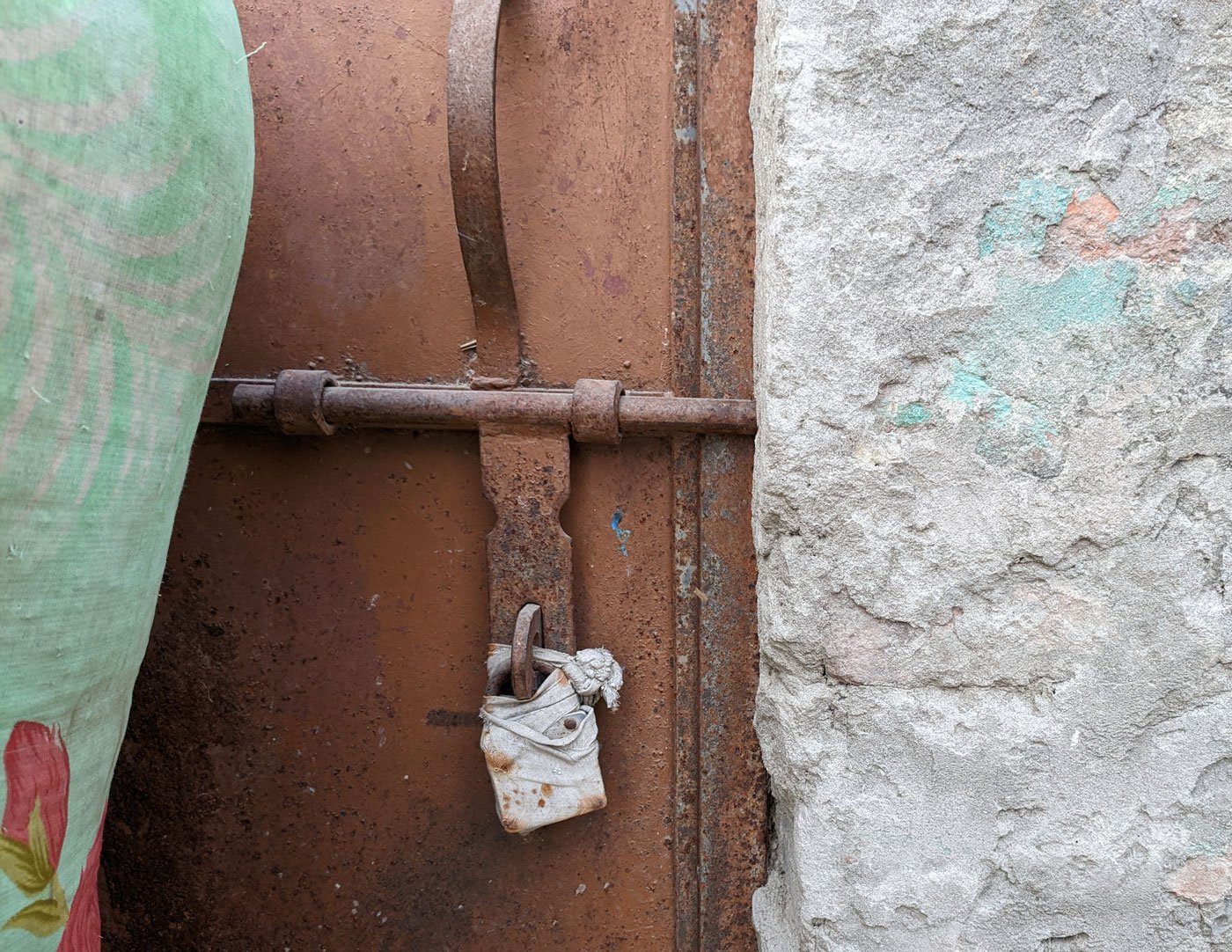
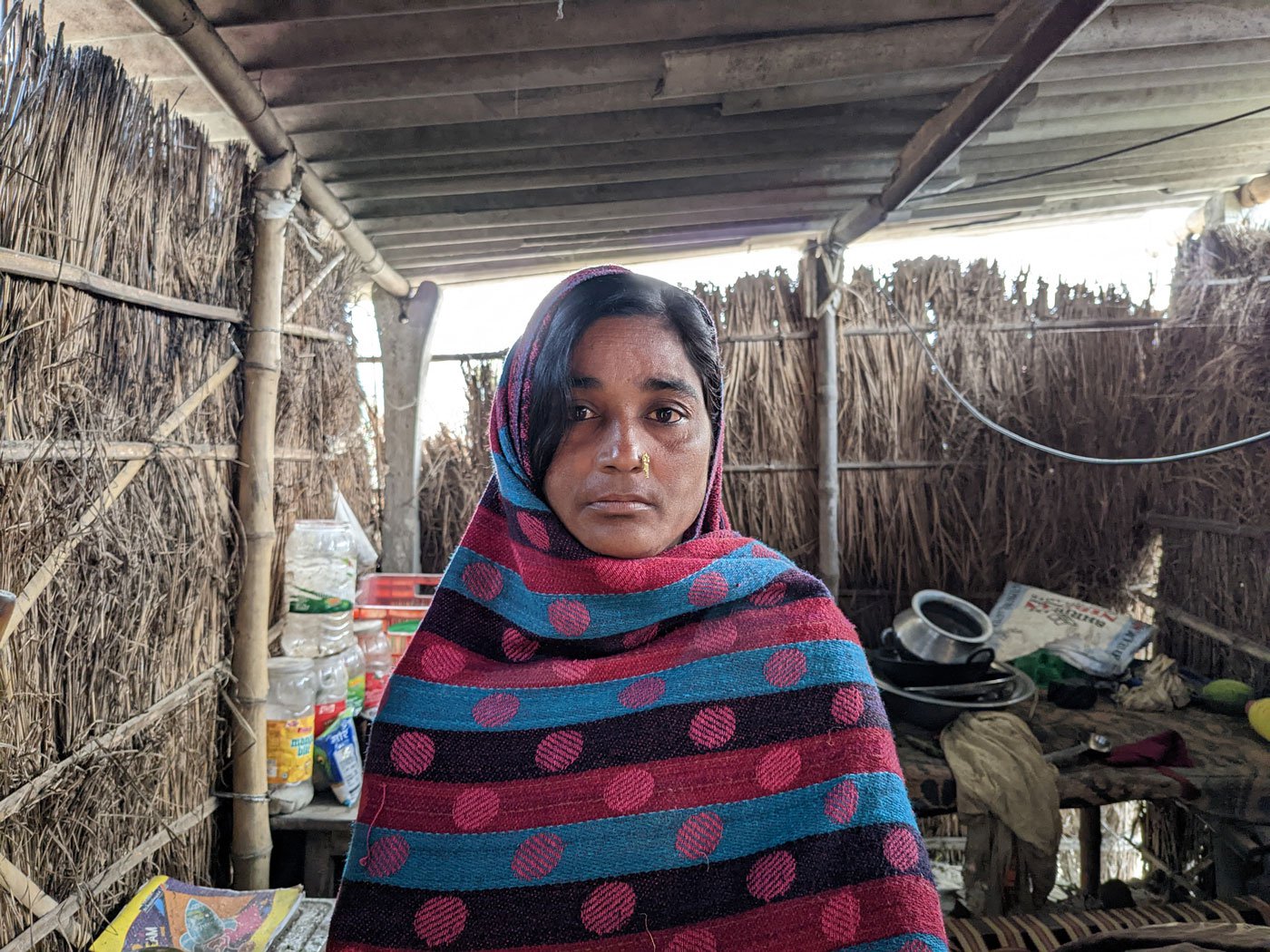
Left: The police sealed Mukesh and Prabhabati's house after filing an FIR, accusing him of selling illicit liquor. Right: Prabhabati was widowed by illegal hooch and made homeless by prohibition laws
“I came back and saw that our house has been sealed. I was forced to keep my husband’s body outside. My children and I lit some puaraa [straw] and survived the night under the open sky,” she recalls.
“Gharbo se gaini, aa mardo se gaini? I taa kono baat naikhe bhail na. Kono taa adhar kare ke chahi [I lost my house, and my husband too. This is simply not done. There must be some basis for these things],” she says.*****
As of the day this story was published, 26 deaths have been recorded after consuming spurious liquor on April 14, 2023, and many more are still ill across different villages of East Champaran district, says a press release issued by the Bihar police.
Producing, buying, selling and consuming foreign and country liquor and toddy is forbidden in Bihar under the Bihar Prohibition and Excise Act, 2016.
So Prabhabati was widowed by illegal hooch and made homeless by prohibition laws.
The police from the Mohammadpur station filed an FIR based on statements from locals. It states that Mukesh used to sell alcohol and that 1.2 litres of country liquor has been recovered from his house. According to this FIR, the police reached Mukesh Ram’s house after being tipped off and seized six polythene pouches containing 200 millilitres of alcohol each, and three empty pouches.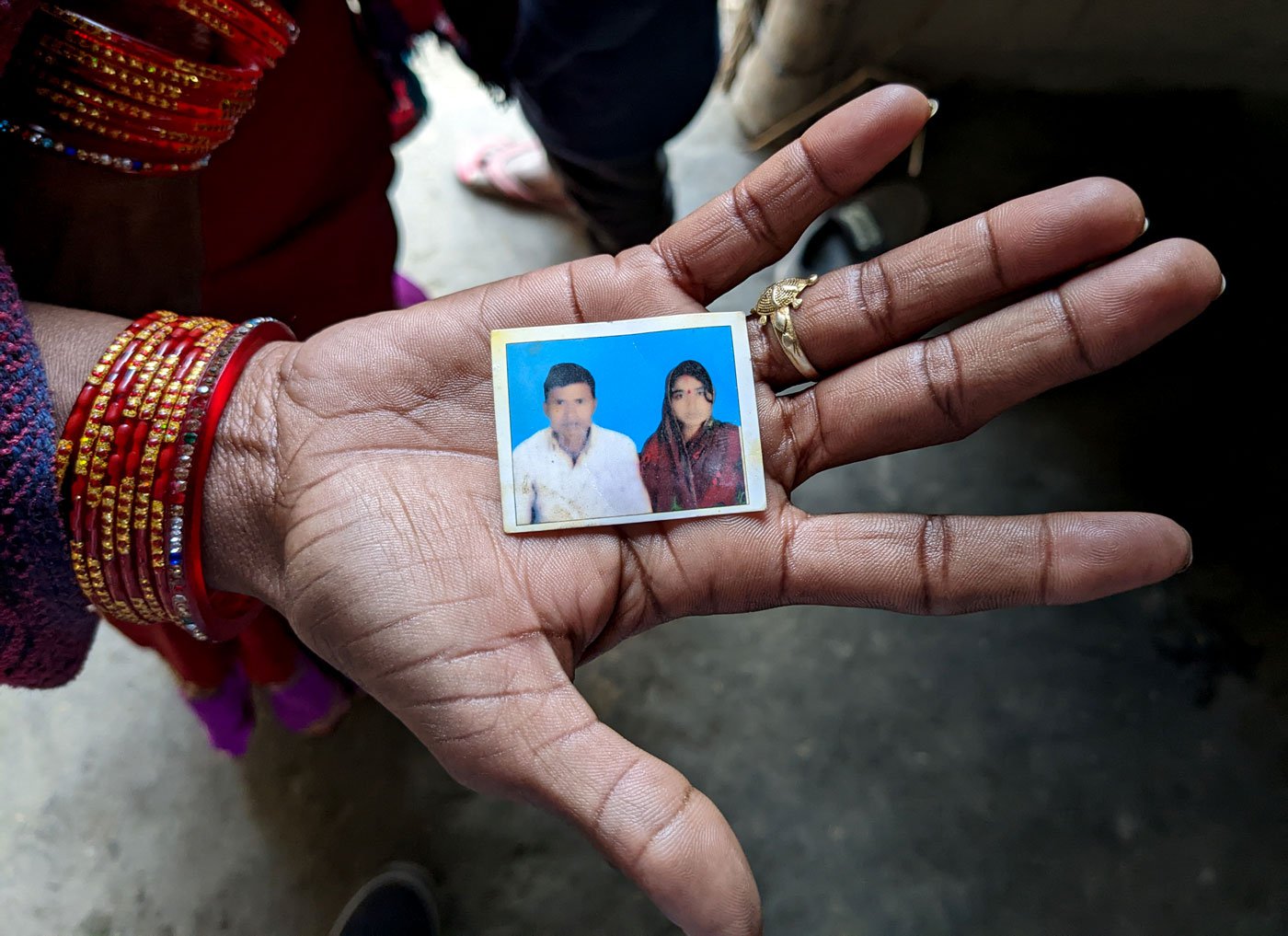
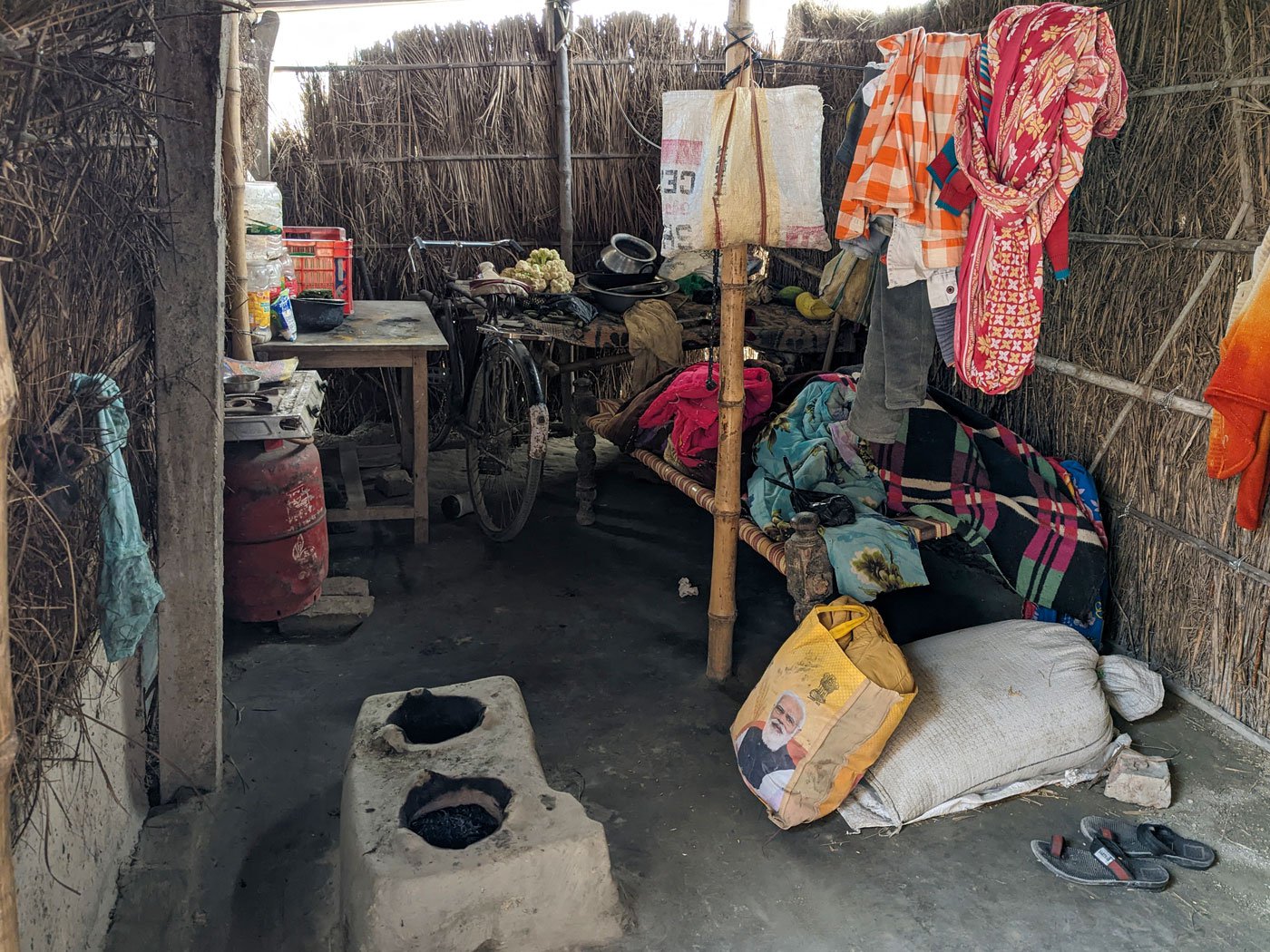
Left: Prabhabati shows a photo of her and Mukesh. Right: After his death , Prabhabati Devi and her four children now live in this makeshift hut near their old home in Mohammadpur village
Rubbishing these charges, Prabhabati told PARI pointing to her now sealed pucca house with an asbestos sheet as roof, “Go and look at the houses of those who sell liquor, if we were doing the same, would our house have looked like this?”
She rejects the allegations made by the police in the FIR and denies that a hooch-business was operating from her house. “Humre maalik saheb ke daaru bechte dekhti taa hum khud kahti ki humra ke le chali [If my husband was indeed selling liquor, I would have gone to the police myself and pleaded to take me in],” she says.
“You can ask the villagers. Everyone will confirm that maalik saheb [her husband] used to work as a mason,” she says while not denying that Mukesh used to drink occasionally. “He used to drink only when his friends made him do it. The day he returned with a headache, he didn't tell me that he had been drinking.”
Mukesh's body was not sent for an autopsy, so she will never get a chance to know what happened.*****
Situated on the UP-Bihar border, Mohammadpur village in Sidhbalia block has a population of 7,273 (Census 2011), and roughly a tenth (628) belong to Scheduled Caste communities. Most migrate to other states in search of work and those who can’t stay back to work as daily wage labourers.
In the hooch tragedy in Gopalganj district that took Mukesh’s life, 18 people died after consuming spurious liquor, and 10 of those, like Mukesh, belonged to the Chamar caste, considered as Mahadalit in Bihar. Their traditional occupation is removing the hide from dead cattle and selling it.
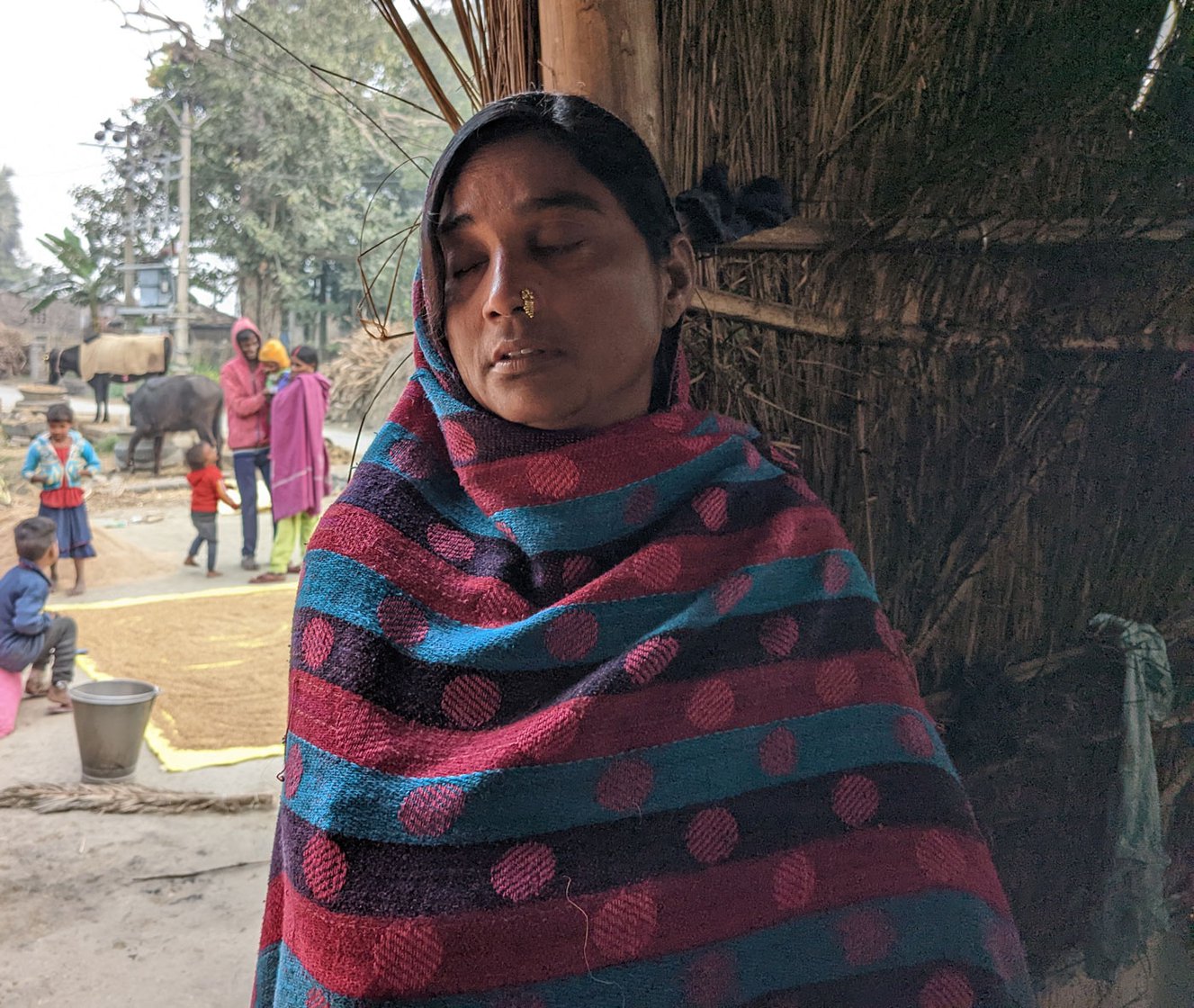
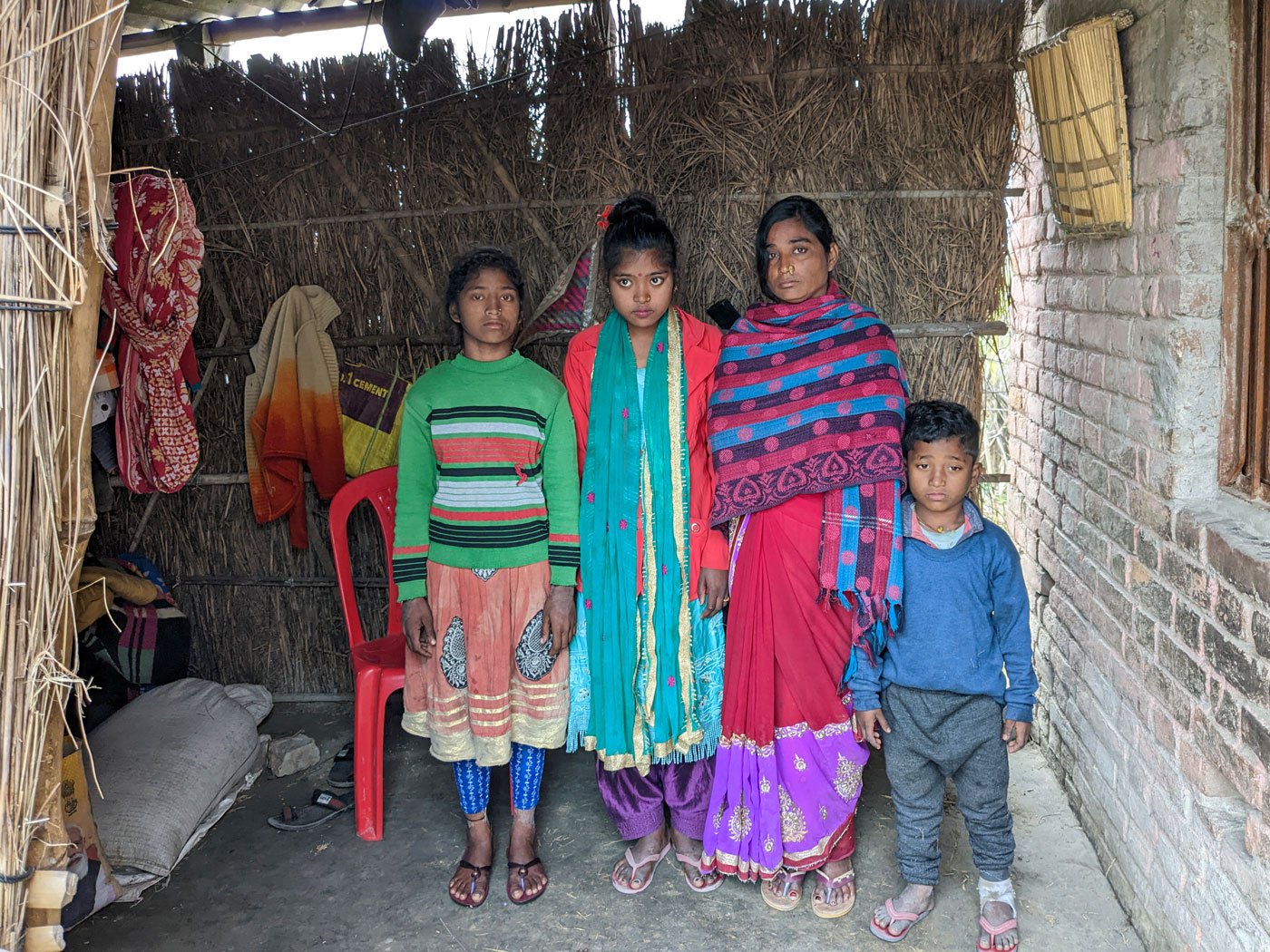
After Mukesh's death, the family is struggling to managing their expenses. Prabhabati with her children, Preeti, Sanju and Anshu (from left to right)
In Bihar state, 72 people died after consuming spurious liquor and since 2016, the number of casualties has been 200, and their families have not received any compensation.
Often the police and other officials do not record the deaths as caused by alcohol so the figures could be misleading. In most cases the police simply refuse to accept illicit alcohol as the cause of death.
*****
Prabhabati's house was sealed suddenly; she didn't even get the chance to take out essential items like clothes, chowki (wooden cot), food, etc. Her sister-in-law and neighbours helped her during that time.
When Mukesh was working in Shimla, he used to send Rs. 5,000-10,000 each month. Since his passing, Prabhabati has been working as an agricultural wage worker to provide for her four children – two daughters Sanju and Preeti ages 15 and 11 and two boys Deepak and Anshu, ages 7 and 5. But work is available only two months in a year and has to make do with her monthly widow-pension of Rs. 400.
Last year, she leased 10 kattha (approximately 0.1 acre) as a sharecropper and cultivated paddy, managing to harvest around 250 kilos of rice. The landowner had given her the seeds and Prabhabati's sister had given her Rs. 3,000 to spend on inputs like fertilisers, compost, irrigation and more.
Mukesh and Prabhabati’s elder son, Deepak stays with her sister who has also taken on the responsibility of educating him. Prabhabati has a debt of Rs, 1o, 000, taking in small amounts – asking for Rs. 500 here, and a 1,000 there. She refers to it not as debt, but as 'haath uthay [borrowing small amounts of money without any interest]. “I ask 500 [rupees] from someone, and a 1000 [rupees] from someone else. I pay them back within a few days. If I take 500 or 1,000 rupees and pay back soon, they [lenders] do not charge any interest,” she says.
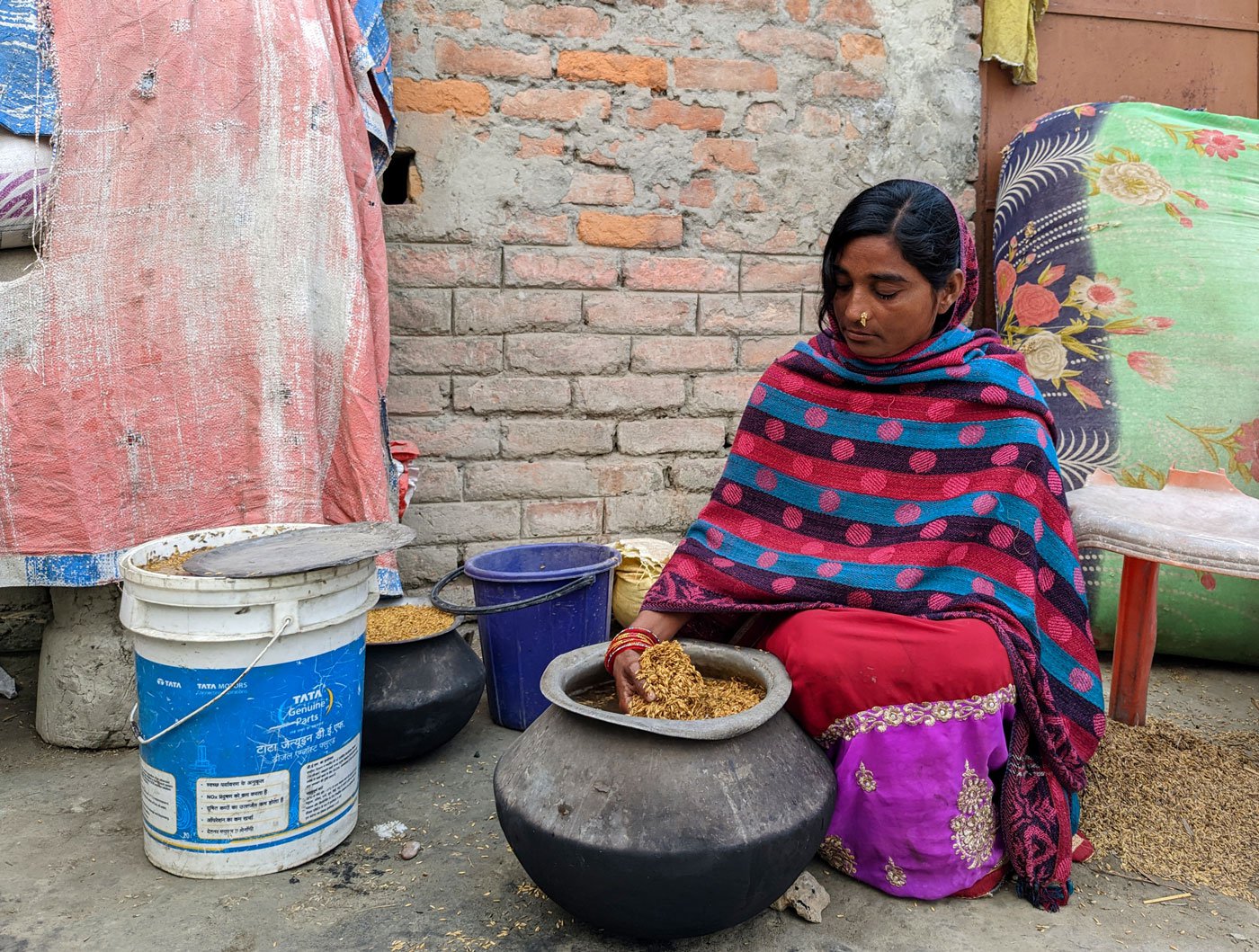
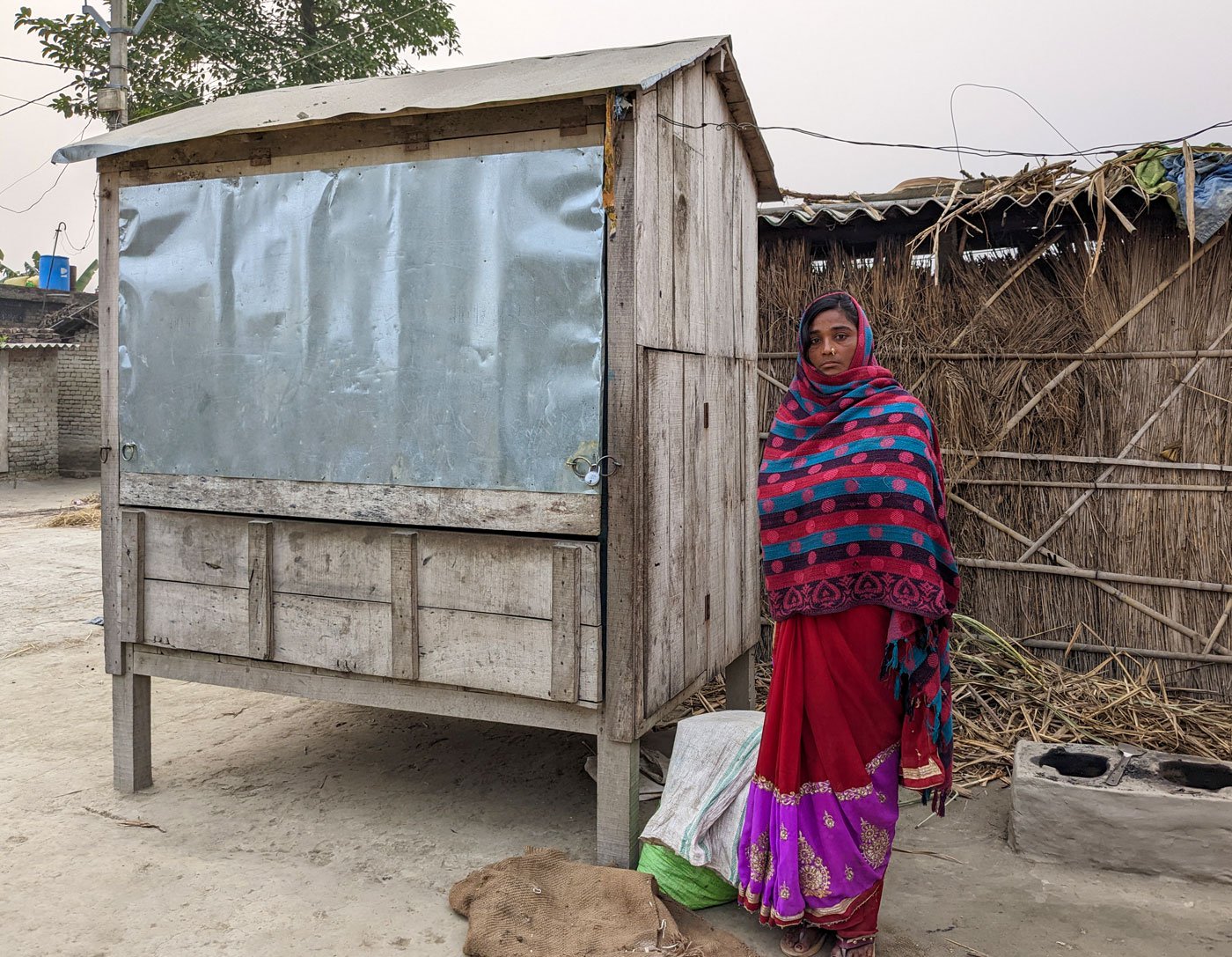
Prabhabati has leased 10 kattha of land to cultivate paddy. She stands next to small shop (right) she was given by the Bihar government as part of a poverty alleviation scheme
Three months after Mukesh died, Prabhabati received a small
goomti
(tiny shop built of wood) and inventory worth Rs. 20,000 from the Bihar government under a poverty alleviation scheme.
“Surf [detergent], Kurkure [snacks], biscuits, these were the things I was given to sell. But profit was meagre, and I could save only 10 rupees at the end of the day. My kids would spend those 10 rupees and get something to eat. How could I turn a profit? On top of that, I fell sick. Whatever I earned for the shop, it was spent on treatment,” she says.
The future worries Prabhabati. “How will I bring up my kids? How will I get my two daughters married? My head throbs and aches with these thoughts. I cry until I fall ill. I keep thinking where to go, what to do, so that I can earn a little and keep my children fed,” She says, adding, “ humra khaani dukh aa humra khaani bipad mudayi ke naa hokhe [Even my enemies shouldn't suffer such sorrow and calamity].”
The death of her husband had pushed the family into poverty: “When maalik saheb was alive we used to have meat and fish. But since he's gone, we can’t even get vegetables. Please write in such a way that the government is forced to help me, and I get some money in hand,” she says in despair.
This story is supported by a fellowship in memory of a trade unionist from Bihar who championed the struggles of marginalised people in the state.
